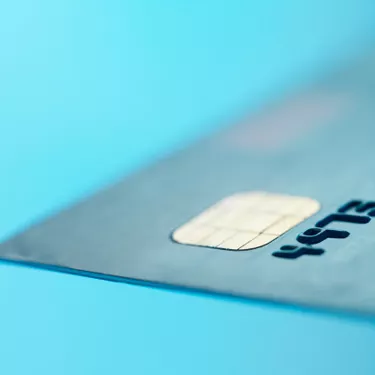
Chip-and-PIN cards are debit or credit cards that integrate a small microchip on the front of the card. This chip allows the user to set a four-digit PIN number for the card. Chip-and-PIN cards are thought to be more secure than regular credit cards, since no signature verification is required.
Magnetic Stripe
Video of the Day
The magnetic stripe on regular credit cards contains all the sensitive information on the card, while chip-and-PIN cards encode that information on a small microchip. Chip-and-PIN cards are generally more secure than credit cards that rely on signature verification, since chip-and-PIN cards keep many account details from the retailer's view.
Video of the Day
Pin Transactions
Chip-and-PIN cards require a pin number to be associated with card to verify purchases -- just like a bank cash card. With a chip-and-PIN card, an in-store transaction is processed slightly differently than those made with magnetic stripe cards. A chip-and-PIN card is usually inserted into the credit terminal instead of swiped. The shopper then enters her PIN instead of signing a receipt to verify the charge.
Compatibility
Chip-and-PIN networks around the world vary in levels of compatibility. Chip-and-PIN cards from Europe can only be processed in some countries if the card also can be verified by swiping the magnetic stripe. Many card issuers use a hybrid chip and pin card for this reason. The chip-and-PIN card can still offer greater security in compatible areas, while the stripe can be used like a conventional card in incompatible areas.
Other Differences
Because chip-and-PIN cards are more secure in the way they process information, card issuers consider transactions approved with a PIN far less likely to be fraudulent. For this reason, it can be more complicated to dispute fraudulent charges, should someone charge your card and know your pin.